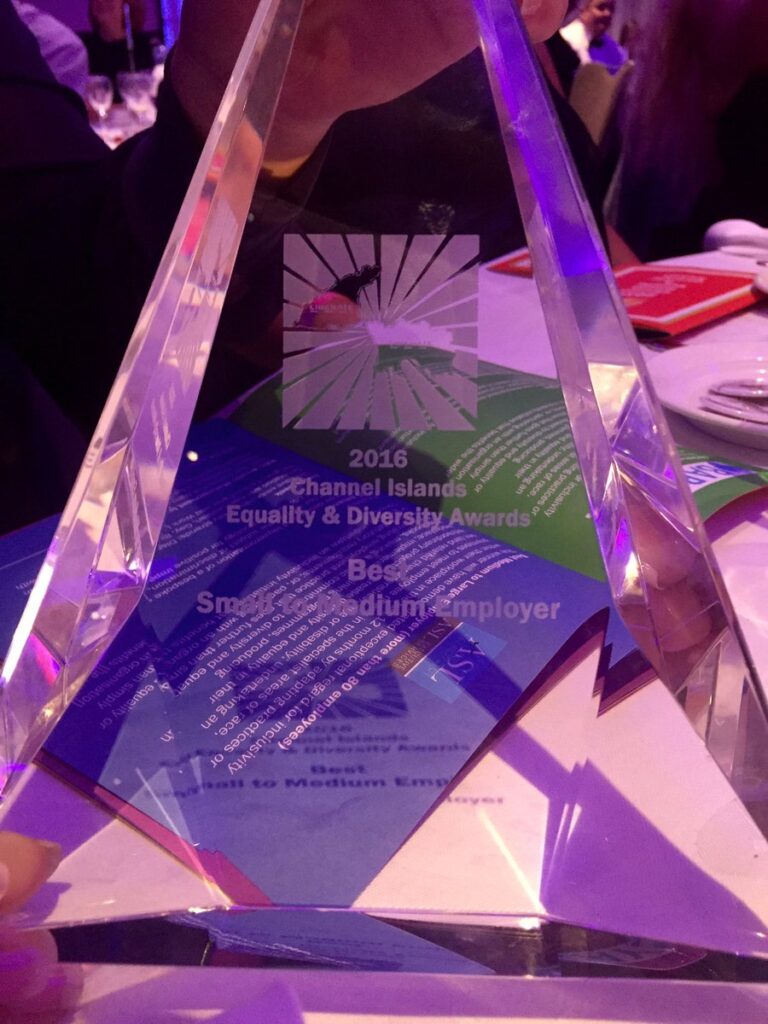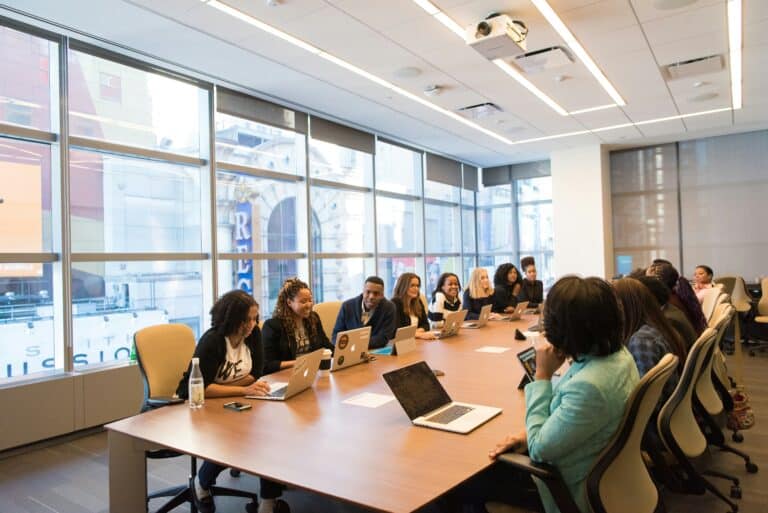
At LAW, we talk about difference a lot to our clients and amongst ourselves. Unlike a number of organisations that believe Jersey’s discrimination law has shut down all ability to discuss race, gender, sexual orientation, age, disability etc, our experience has been the exact opposite. As an employer, we ask each other about our differing perspectives and life experiences regularly. We have a laugh when the English speakers in the office are encouraged by our Polish speakers to learn some Polish words (and fail badly at their pronunciation!) or when our trans employee tries to help us to understand the inter-connection between being transgender and one’s sexuality (and we get it muddled up!). We understand that the things that make us different are also the things that are valuable to our workplace and give us a unique view to offer the company – because we have been reassured that this is the case by our directors. We know far more about the people we work with now than we did before September 2014.
LAW tries to foster a culture of learning, respect and openness about diversity that allows everyone to speak about and be proud of their identity without fear of being discriminated against in the workplace because of that identity. We were, therefore, delighted when that culture was recognised at the Channel Islands Equality & Diversity Awards, held during Channel Islands’ Pride week, and we were awarded Best Small to Medium Employer for 2016.
Many small businesses feel that equality and inclusion is something that only big businesses can afford to do and that with a small workforce it is impossible to be diverse. This is not the case as we have proved. Equality and diversity is easy if you create the right environment for it to thrive.
Equality, diversity and inclusion starts at the top. For example, our board is 60% women and 40% men, a balance that happens to reflect the percentage of men to women in the Jersey workforce. In April, 2015 the European Commission found that the average share of women on boards of the largest listed companies in the UK was 25.9%. This is not sufficiently representative of the workforce being managed. How can a disproportionately weighted board fully understand the experience of those not represented on that board and, conversely, how can their employees have confidence in the impartiality of processes when they don’t see themselves represented at the decision-making level?
LAW’s directors know, from daily case handling, what it means to be overlooked for promotion, to be unable to work effectively because of being undermined, or to attract unwanted attention and harassment from a colleague, because of characteristics employees have little control over. They do not, therefore, pretend that barriers do not exist in the workplace, they are alive to this reality and actively work to embrace the positive things that every individual brings to LAW, irrespective of any group that the employee might belong to.
This is the key to making diversity work – treating every employee as an individual not a stereotype. LAW’s ethos relating to hiring, promotion, selection etc is based on merit. This pays dividends as it ensures that we get the best person for the job rather than the person that the recruiter thinks will fit best with their perception of the group’s traits.
We also try to build diversity into our hiring process. We will deliberately seek out applicants from organisations that we know have a diverse intake and we ensure our interview panel facing the applicant is a diverse one.
Of course, we have trained all our staff; been clear about our expectations that they leave any prejudices they may have at the door when they arrive at work; updated our handbook, policies and procedures to ensure they are inclusive; and, would treat any complaints seriously with a clear and fair process. Crucially, these are not just “tick box” exercises. We ensure that these are live issues for our employees by encouraging discussion about diversity and reinforcing it as a core value of the business.
The tangible results of this activity have been five-fold:
- we believe we have a happy, engaged and productive workforce whose opinions are valued, who feel able to be creative in their problem-solving and who work to challenge their own prejudices in order to interact with colleagues and clients without barriers;
- we have created new and sought-after teams who are requested by clients for particular jobs because of their diverse skill set;
- we have opened up new networks and been introduced to markets that we might never have had access to without our diverse employee base;
- we have sold new and innovative products that have been developed through certain employees taking the initiative and seeing a possibility we hadn’t seen; and,
- we have an interesting, challenging and vibrant workplace that changes, innovates and constantly surprises us.
What does all this inclusion cost us? In short, it doesn’t. Any initial cost to train staff and to get policies and procedures right has been paid for by the results (listed above). Equality and diversity are so embedded in our culture that it is second nature to include it when doing anything in the business so the ongoing cost of inclusion is as negligible as the ongoing cost of doing business ethically. We wouldn’t think of acting to exclude someone any more than we would think of charging a client for work not undertaken, say.
In short, we don’t see diversity as optional, it is essential to working in a global, connected world where there is not one view but many. We would encourage more businesses in Jersey and Guernsey to join us in putting equality, diversity and inclusion at the heart of what they do – we guarantee you won’t regret it.





